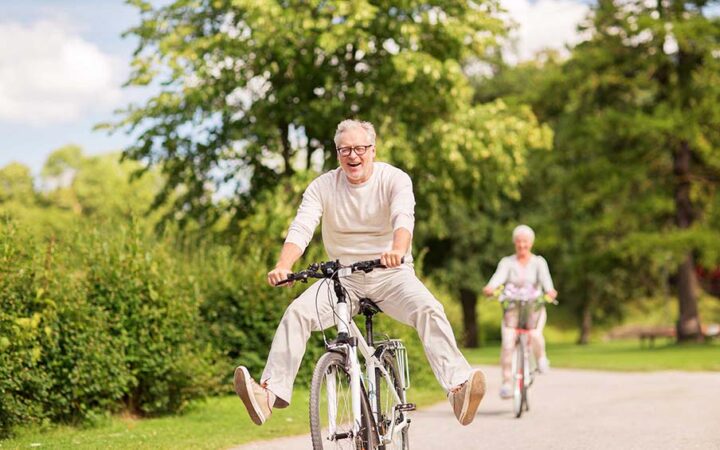Fighting age-related problems involves a multifaceted approach that includes maintaining a healthy lifestyle, engaging in regular physical activity, eating a balanced diet, staying mentally active, and seeking appropriate medical care. The following are some strategies that can help;
v Healthy Lifestyle: Maintain a balanced diet, engage in regular exercise, get enough sleep, and avoid harmful habits like smoking and excessive drinking. These habits can help prevent or manage various age-related health issues such as cardiovascular diseases, diabetes, and osteoporosis.
v Regular Exercise: Exercise can help improve flexibility, strength, balance, and cardiovascular health. Aim for a mix of aerobic exercises (like walking, swimming, or cycling) and strength training to maintain muscle mass and bone density.
v Healthy Eating: A well-balanced diet rich in fruits, vegetables, whole grains, lean proteins, and healthy fats can provide essential nutrients and antioxidants that support overall health and combat age-related issues.
v Adequate Sleep: Quality sleep is crucial for overall health and well-being. Aim for 7-9 hours of sleep per night to allow your body to rest, repair, and rejuvenate.
v Stress Management: Chronic stress can accelerate the ageing process. Practise stress-reduction techniques such as meditation, deep breathing exercises, yoga, or spending time in nature to promote relaxation and emotional well-being.
v Social Engagement: Stay connected with friends, family, and your community. Social interaction is crucial for mental and emotional well-being and can help prevent feelings of isolation and loneliness.
v Mental Stimulation: Keep your brain engaged with activities that challenge your cognitive abilities. This can include puzzles, learning new skills or languages, reading, or engaging in intellectually stimulating conversations.
v Regular Medical Check-ups: Schedule regular visits to your healthcare provider for preventive screenings and health assessments. Early detection and treatment of health issues can often prevent them from becoming a more severe condition.
v Limiting Harmful Habits: Avoid smoking, excessive alcohol consumption, and excessive sun exposure, as these habits can accelerate the ageing process and increase the risk of age-related health problems.
v Maintain A positive outlook: Adopting a positive attitude and outlook on life can have a significant impact on how you experience ageing. Cultivate gratitude, resilience, and a sense of purpose to promote emotional well-being.
v Seek Professional Help: If you’re experiencing specific age-related issues such as chronic pain, mobility issues, cognitive decline, or emotional struggles, don’t hesitate to seek help from healthcare professionals, therapists, or specialists who can provide targeted support and interventions.
v Stay Active: Regular physical activity can help improve strength, flexibility, and overall health. This can include activities like walking, swimming, yoga, or tai chi. Even simple activities like gardening or dancing can be beneficial.
In addition, ageing is a natural part of life, and while it may come with its challenges, there are many opportunities for growth, fulfilment, and enjoyment at every stage. Therefore, you need to adapt to change and recognize that ageing brings changes, both physically and mentally. Moreover, accepting and adapting to these changes can help you maintain a positive outlook and quality of life.
How to fight age-related problems
- April 27, 2024
- 145












